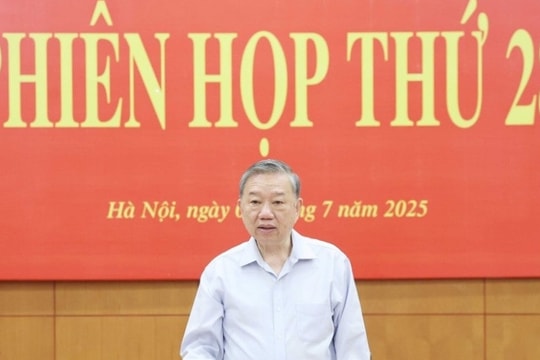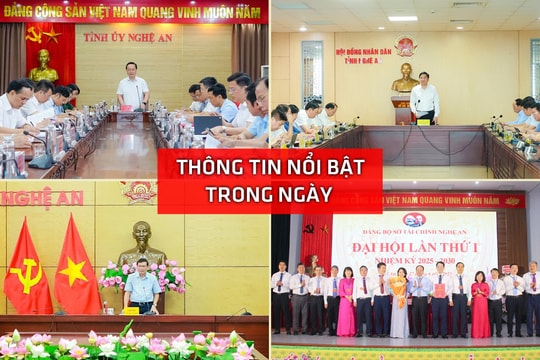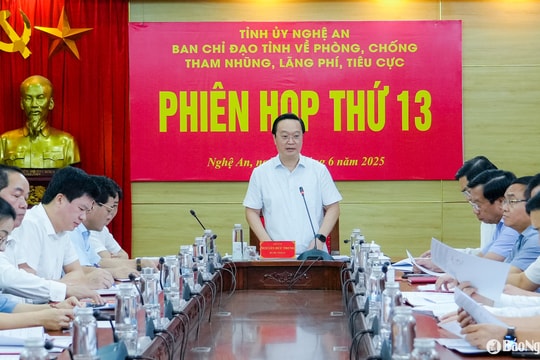Anti-corruption: The struggle within every human being
(Baonghean.vn) - International Anti-Corruption Day was born and is celebrated on December 9 every year, since the adoption of the United Nations Convention against Corruption. Effective since 2005, by early 2020, the Convention has nearly 190 participating countries. Vietnam has been an official member since 2009.
Corruption is a “birth defect” of power; it exists in every country and at every time, regardless of political regime or level of development. Like darkness following power, the greater the power, the more likely corruption is to arise. Since ancient Greece, there have been cases of officials taking bribes from the people and embezzling public funds. According to the law of the city of Athens at that time, corrupt officials would be stripped of their citizenship and the right to participate in city and state organizations. In Byzantium, the punishment for this crime was castration or blindness.
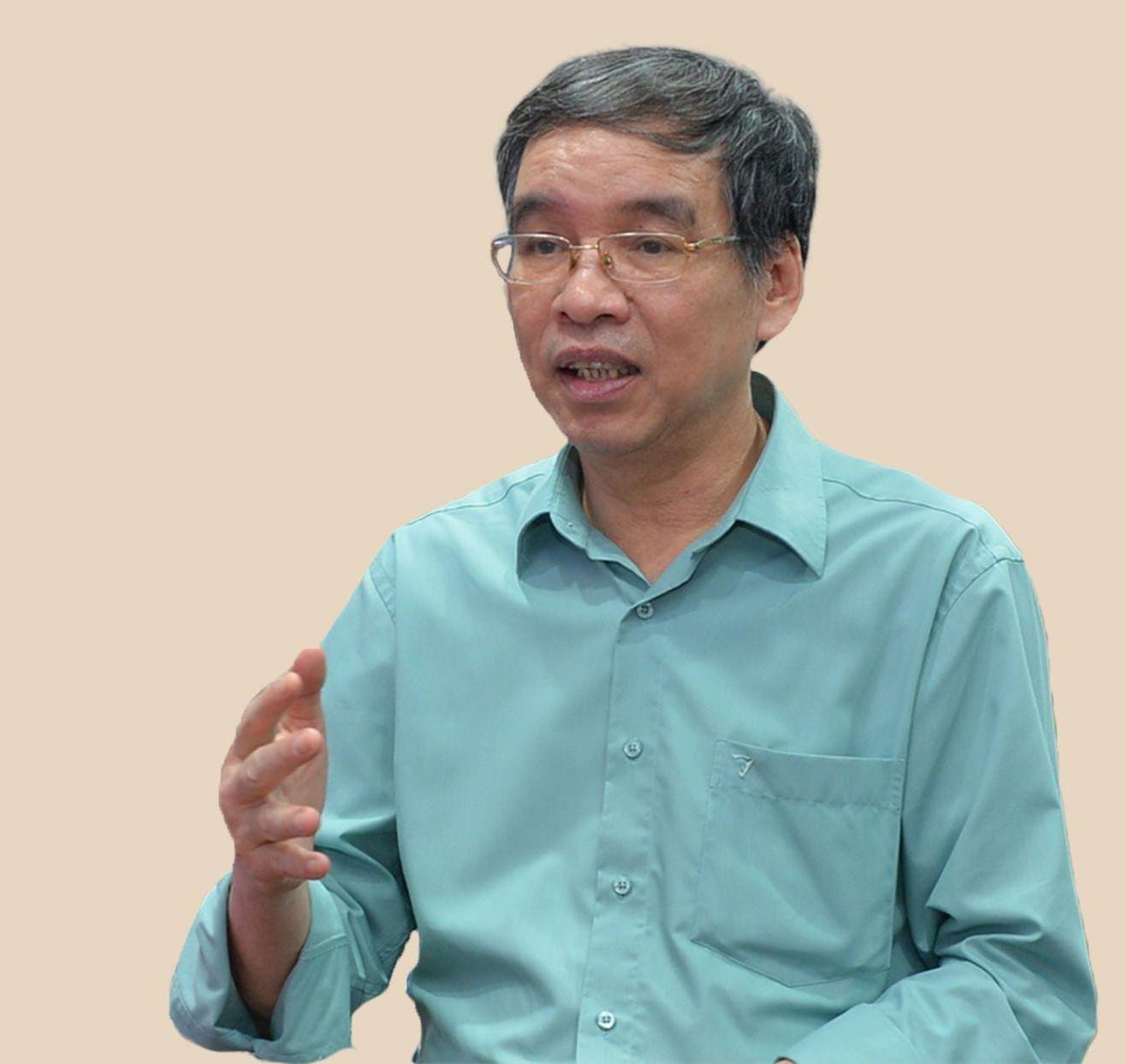 |
Journalist Nguyen Bac Van |
In Vietnam, since ancient times, our ancestors have said: "A mandarin sees a lawsuit like an ant sees fat", "A silver bar can tear a piece of paper"; and taught: "Be clean when hungry, be fragrant when ragged". In order to prevent corrupt mandarins, many feudal dynasties had specific laws, such as the Hong Duc Law of the 15th century, which considered corruption a dangerous crime; which stated: "Receiving bribes from 1 to 9 mandarins will be punished with "demotion" (demotion) or dismissal;... from 50 mandarins or more will be executed".
Because of this global disease, the International Anti-Corruption Day was born and is celebrated on December 9 every year, since the adoption of the United Nations Convention against Corruption (October 31, 2003). Effective since 2005, by early 2020, the Convention had nearly 190 participating countries. Vietnam has been an official member since 2009. The 20th International Anti-Corruption Conference this year takes place from December 6-10, 2022 in Washington DC (USA), with the theme: Eradicating corruption, protecting democratic values. Realizing that wish is not easy, because corruption is increasingly sophisticated, organized, seriously affecting the right to live in peace and security of each person.
Realizing the harmful effects of corruption, just over a month after our State was born, on October 17, 1945, President Ho Chi Minh sent a letter to the People's Committees of regions, provinces, districts and villages. In it, he wrote: "We want to eat well, dress well, becoming more and more luxurious, more and more romantic, but where does the money come from? We even take public property for private purposes, forgetting integrity and morality." (Ho Chi Minh Complete Works, National Political Publishing House, Hanoi 1995, Vol. 4, p. 56).
 |
Graphics: Diep Thanh |
In the process of nation building, our Party has always attached importance to the fight against corruption and negativity. Since the Central Steering Committee on Anti-Corruption under the Politburo, headed by the General Secretary, was established on February 1, 2013, the fight against this "internal invader" has entered a new phase, increasingly going into depth and fiercely with results that have left a good impression on the people. In the 10 years from 2012 to 2022, 170 officials under the Central management have been disciplined, including Politburo members, Central Committee members and many generals. Since the beginning of the 13th term up to now, 67 officials under the Central management have been disciplined, including 13 members and former members of the Party Central Committee (including 5 ministers and former ministers; 7 secretaries and former provincial party secretaries; 18 deputy ministers and former deputy ministers and equivalent positions, etc.). An unprecedented figure.
But the biggest concern is that despite such drastic measures, corruption has not been prevented but has become more complicated in many new areas such as disease prevention and control, securities, real estate, etc. In the midst of the Covid-19 pandemic, when the whole country is struggling to fight the epidemic like fighting an enemy, people, no matter how hard it is, are still willing to share with each other from instant noodles to bunches of vegetables, while hundreds of officials are taking advantage of that situation to make money. Those who are called "public servants" of the people are willing to inflate the price of test kits to benefit; receive or broker bribes on flights to rescue our compatriots from epidemic areas back home. Those corrupt acts are no longer humane, let alone public service ethics.
It is heartbreaking that the above-mentioned violators are mostly cadres who have received basic training and have matured from practice. Many of them are assessed to have qualifications, qualities, and abilities, and are promoted to important positions, even to the top of the industry or locality. What makes them lose themselves and significantly affect the honor and prestige of the Party, and reduce the people's trust? Is it as President Ho Chi Minh warned: "Cadres of agencies and organizations, high-ranking have great power, low-ranking have small power. Whether big or small, having power but lacking conscience is an opportunity to exploit, to take bribes,..." (SDD, Vol. 5, p. 117). That is the degradation of morality and lifestyle.
Degradation and corruption are two sides of the same coin. Degradation in political ideology, morality, and lifestyle is the root cause of corruption, including political corruption, power and position abuse; conversely, corruption makes degradation more and more serious, causing the degeneration and deterioration of officials. Fighting degradation will prevent corruption. Fighting corruption is difficult, but fighting degradation in morality and lifestyle is even more difficult, because it is a manifestation of falling into individualism, it is hidden in every person, if not overcome, will collapse. In reality, many officials who are honored as heroes, have made many contributions to society, but cannot fight greed and end up in trouble with the law.
As such, we can see that fighting corruption is not only about fighting against those who take advantage of policies and abuse their power to commit wrongdoings and gain benefits, but it is also a struggle within each individual, especially those in positions of power, each organization, first of all within anti-corruption agencies and those who undertake this responsibility.
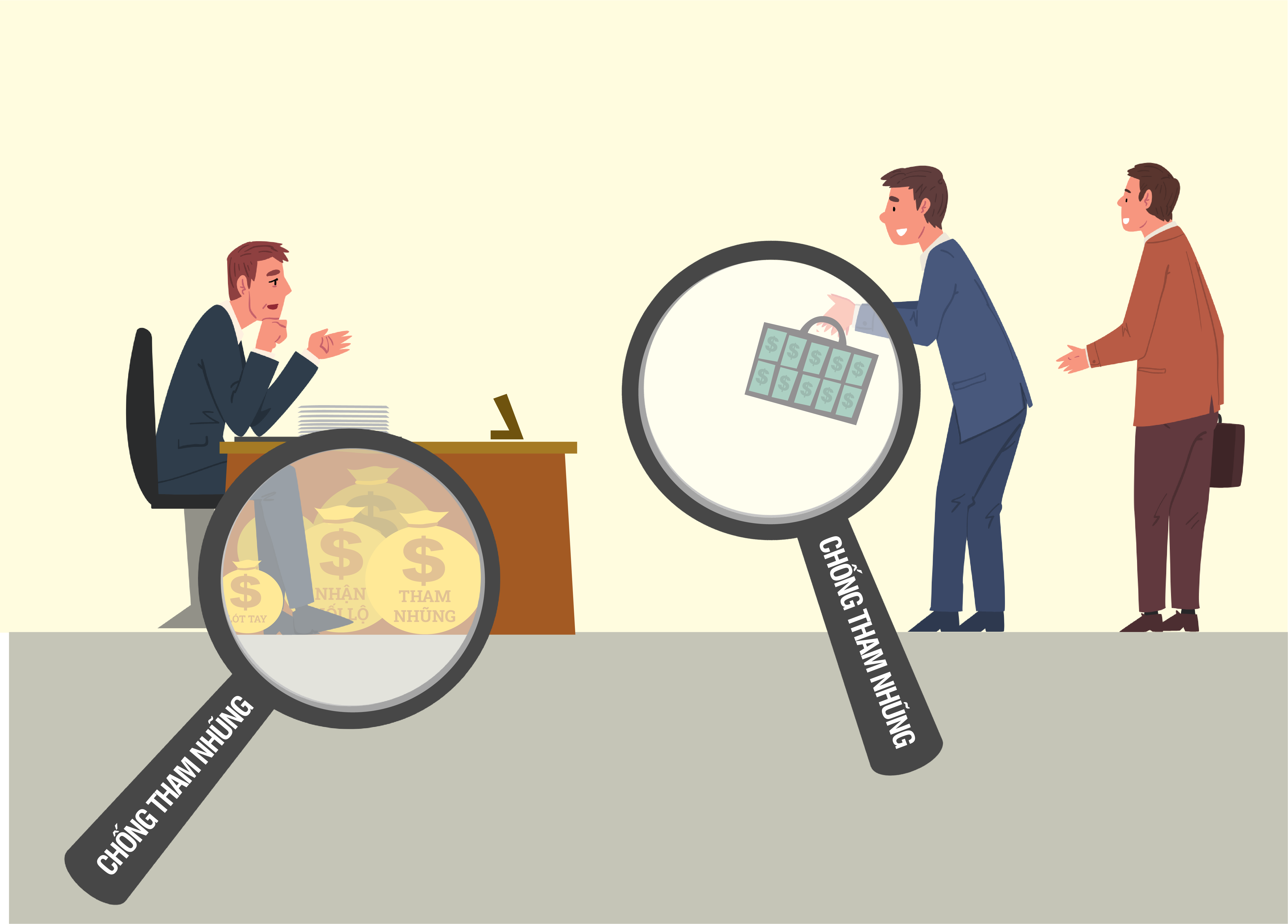 |
Graphics: Diep Thanh |
To eradicate corruption, it is necessary to first promote Party building and rectification in association with studying and following Ho Chi Minh's ideology, morality and lifestyle, and promote the responsibility of setting an example and preventing degradation in political ideology, morality and lifestyle. At the same time, there must be a strict and synchronous mechanism and legal policies to prevent "corruption", a strict deterrent and punishment mechanism to prevent "not daring to be corrupt" and a suitable mechanism and policy to prevent "corruption". The higher the position of an official, the more he must set an example and restrain himself from being swayed by all temptations. Wherever power is given, there must be a control mechanism.
With the view that anti-corruption must go hand in hand with anti-negativity, on September 16, 2021, the Politburo issued Regulation 32, supplementing the functions and tasks of the Central Steering Committee on anti-corruption and anti-negativity, not only directing anti-corruption work but also including anti-negativity with a focus on degradation in political ideology, ethics, and lifestyle among cadres, party members, civil servants, and public employees, first of all, leaders and managers. At the provincial level, the Steering Committee for anti-corruption and anti-negativity has also been established, which will make this work implemented synchronously and uniformly from the central to local levels.
Corruption is like a virus that corrodes people's trust and justice, affecting the survival of every regime. Not only that, it is also like a ghost that drowns people in the mud of humiliation. Talking about corruption and negativity, General Secretary Nguyen Phu Trong has shared many times that there are people who lack nothing, but are greedy, and before doing anything they think of sucking it up. Speaking softly is sucking it up, speaking loudly is violating the law, no longer worthy of being a party member, people look down on them... A lot of money, when you die you can't take it with you. Honor is the most noble and sacred thing. In reality, many officials with mansions and cars lost everything because of corruption, their families were broken, their honor and career were gone. How painful!

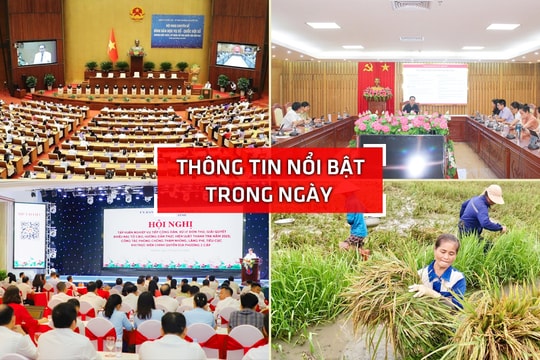
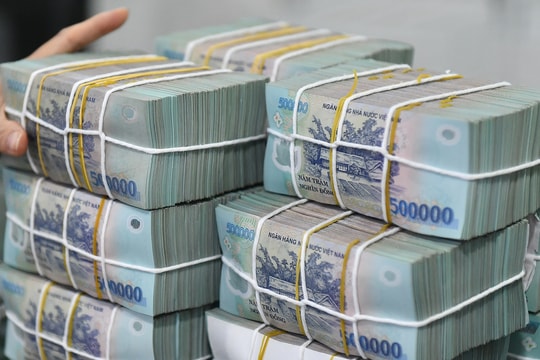
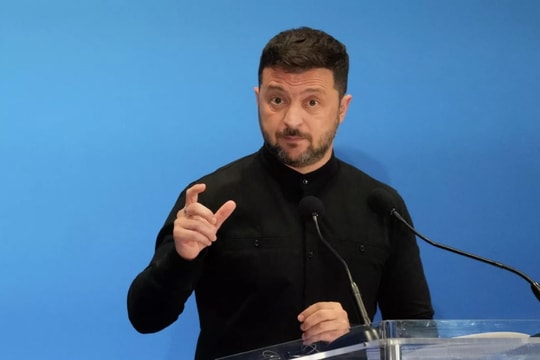
.jpg)
